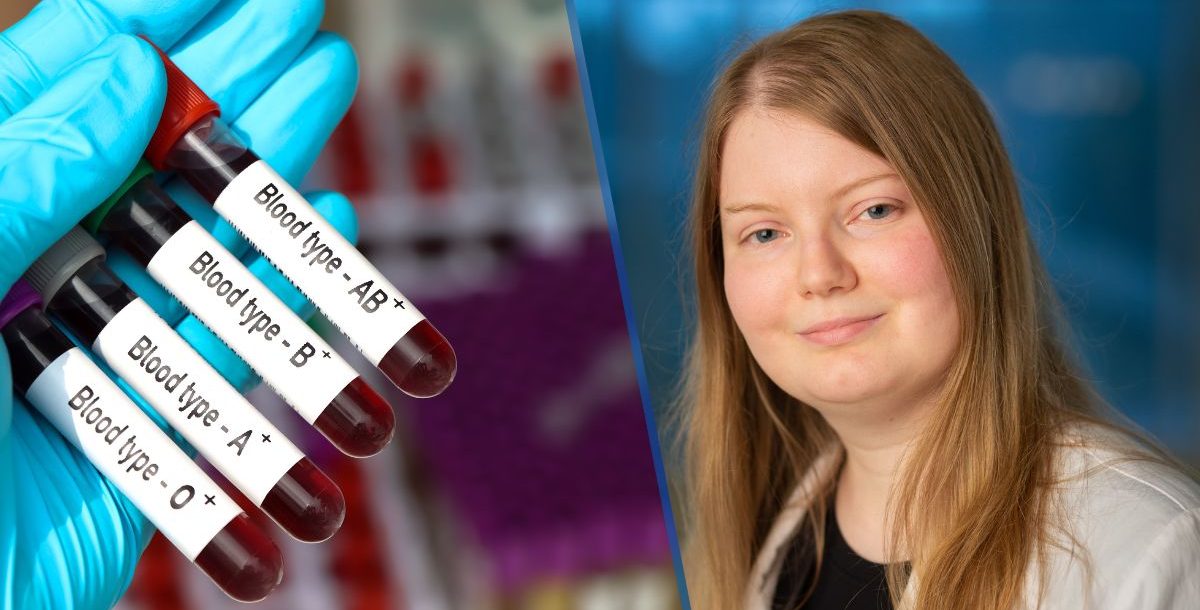The following piece was written by Hannah Anderson, APRN-CN, a provider at Mercy Health – Paducah Internal Medicine.
What are the different blood types, you might ask? Well first things first, let’s take a step back to more than a hundred years ago.
Before 1901, there was a common misconception that all blood was the same. However, numerous fatalities from blood transfusions prompted Karl Landsteiner, an Austrian scientist, to make a groundbreaking discovery: that there are distinct blood types in humans. Therefore, to ensure a successful blood transfusion, the recipient must be receiving blood of a compatible type.
So, why are there different blood types?
Your blood contains proteins known as antigens and antibodies. Antigens reside on the surface of red blood cells. At the same time, antibodies exist in the plasma, the liquid component of your blood in which red blood cells are suspended.
The antigens in your blood determine your blood type, and these antigens are inherited from your parents. As a result, the combination of your parents’ antigens establishes your blood type.
And how many different blood types are there?
While humans can have over 600 types of blood antigens, there are two primary ones: A antigen and B antigen.
Blood types are also distinguished by another antigen called the Rh factor. When the blood contains the Rh antigen, it is regarded as Rh positive; if not, it is labeled Rh negative.
The presence or absence of A, B and Rh antigens results in eight blood types, with most individuals falling into one of these eight categories.
What are the different blood types?
The eight different blood types are as follows, listed from the most common to the least common in the United States:
- O Positive (O+): What is the most common blood type? It is O-positive with 37.4 percent of Americans possessing it. Individuals with O+ blood can also donate to individuals with a positive blood type.
- A Positive (A+): 35.7 percent of the U.S. population has A+ blood, making it one of the most common blood types. These individuals can donate to those with A+ and AB+ blood types.
- B Positive (B+): 8.5 percent of Americans have B+ blood, which can be donated to individuals with B+ and AB+ blood types.
- O Negative (O-): Only 6.6 percent of Americans possess O- blood. So, what blood type is the universal donor? It is O-! They are capable of donating to individuals of all blood types. In fact, O- blood is so important because it is used during emergency blood transfusions when there isn’t time to check a patient’s blood type.
- A Negative (A-): Constituting 6.3 percent of Americans, individuals with A- blood can give to others with A and AB blood types.
- AB Positive (AB+): Individuals with AB+ blood are universal recipients and can receive blood and plasma of any type. This blood type is only present in 3.4 percent of the U.S. population.
- B Negative (B-): 1.5 percent of Americans possess B- blood, making it one of the rarest blood types. B- individuals can donate to individuals with B and AB blood types.
- AB Negative (AB-): The rarest blood type, only 0.6 percent of Americans have AB- blood. Yet, they are universal plasma donors and can give plasma to individuals of any blood type.
How can you quickly find out your blood type?
Donating blood offers a simple way to learn your blood type; no prior knowledge is necessary. After presenting, you will be informed of your blood type if you are unaware. Additionally, a single blood donation can save the lives of three individuals, underscoring the critical importance of blood donors!
So, what are the different blood types? Hopefully now you can answer this question and have also learned something new.
And, if you are able, please consider scheduling a blood donation appointment or signing up for an upcoming blood drive in your community. Blood donations make a meaningful difference in the lives of others. And by contributing to these ongoing efforts, we can collectively safeguard the well-being of our communities.
Learn about the primary care services we provide at Mercy Health.






